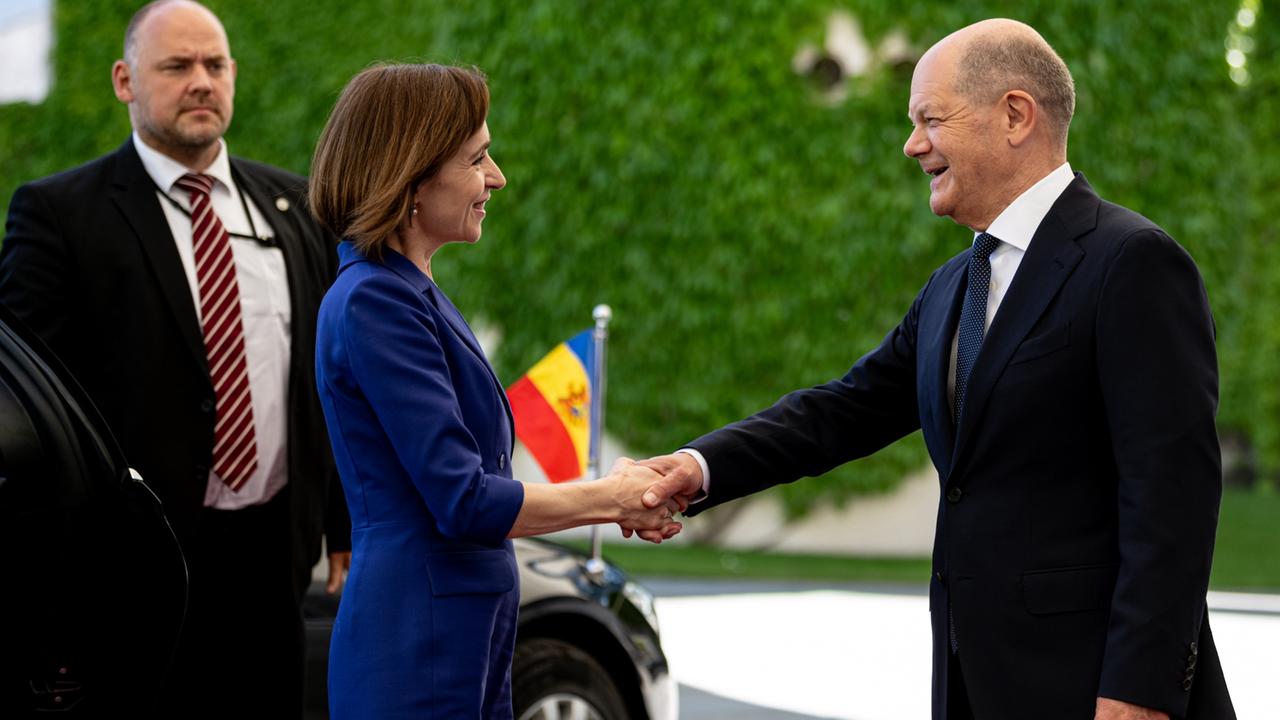The Chancellor is travelling to Moldova today. The former Soviet republic is striving to join the EU, but is suffering badly economically. Scholz wants to demonstrate support – against Russian influence.
The Moldovan president and her pro-European government can use all the support they can get right now. Presidential elections are taking place in October. Once again, much is at stake.
Pro-Russian forces, with help from Moscow, are doing everything they can to stop the country's western course – the course that Maia Sandu stands for. She wants to lead Moldova into the European Union with a very ambitious reform program, as Chancellor Olaf Scholz praised during her visit to Berlin in May.
Pro-Russian forces stir up sentiment
Sandu has achieved a great deal in the four years she has been in office. According to Scholz, she has approached her term of office “with courage, skill and heart” – and with a lot of perseverance. Because the pro-Russian forces use every weakness in the economic and social sphere to stir up sentiment against the government's course.
The supporters of the pro-Russian parties have just met in Moscow, led by Ilan Shor. The man they are celebrating here as a businessman and opposition leader is wanted in Moldova on an arrest warrant. He was involved in a bank fraud case that was devastating for the country and was convicted.
He accuses the pro-European government of having run the country into the ground and robbed it of its values and identity. The country is dying, he complains pathetically. “This is our last, decisive battle,” he declares.
Moldova’s economy badly hit
For Shor, there is no question that the country can only have a future in the post-Soviet space – at Russia's side. That is where the Kremlin also believes it belongs.
The European Union and the German government counter this: “No country is a disposable asset. No one is Russia's backyard,” Foreign Minister Annalena Baerbock never tires of emphasizing. She repeatedly promotes investments in the economically hard-hit country.
The aim is to create jobs locally and thus also prospects – because a large proportion of Moldovans still work abroad in order to be able to support their families at home.
Weaken Russian influence
With the help of a support platform initiated by Germany, France and Romania, attempts are also being made to make Moldova more independent. In the long term, this would also make it less vulnerable to Russian influence – via oligarchs and their parties, via the media or gas prices.
From the perspective of Defense Minister Boris Pistorius, these are partnerships that not only send an important signal internally: “But also externally, to all those who have an interest in destabilizing us and tearing us apart.”
There are reasons why cooperation has also become more intensive on the defense policy level. There is Russia's war against Ukraine, the consequences of which are being felt clearly by neighboring Moldova. And there is Transnistria: a narrow strip of land that split off from Moldova after the collapse of the Soviet Union and where Russian soldiers are still stationed today.
EU accession should be accelerated
Germany, as Defense Minister Pistorius put it in May after the Chancellor, stands firmly by the side of the Republic: “Moldova is part of the European family. And we see what impressive steps Moldova has already taken on the road to EU accession.”
President Sandu wants to make this path irreversible. A referendum will therefore be held at the same time as the presidential election. The decision will be made on whether Moldova's goal of joining the European Union should be enshrined in the constitution.
Christina Nagel, ARD Berlin, tagesschau, 21.08.2024 08:13 a.m.





